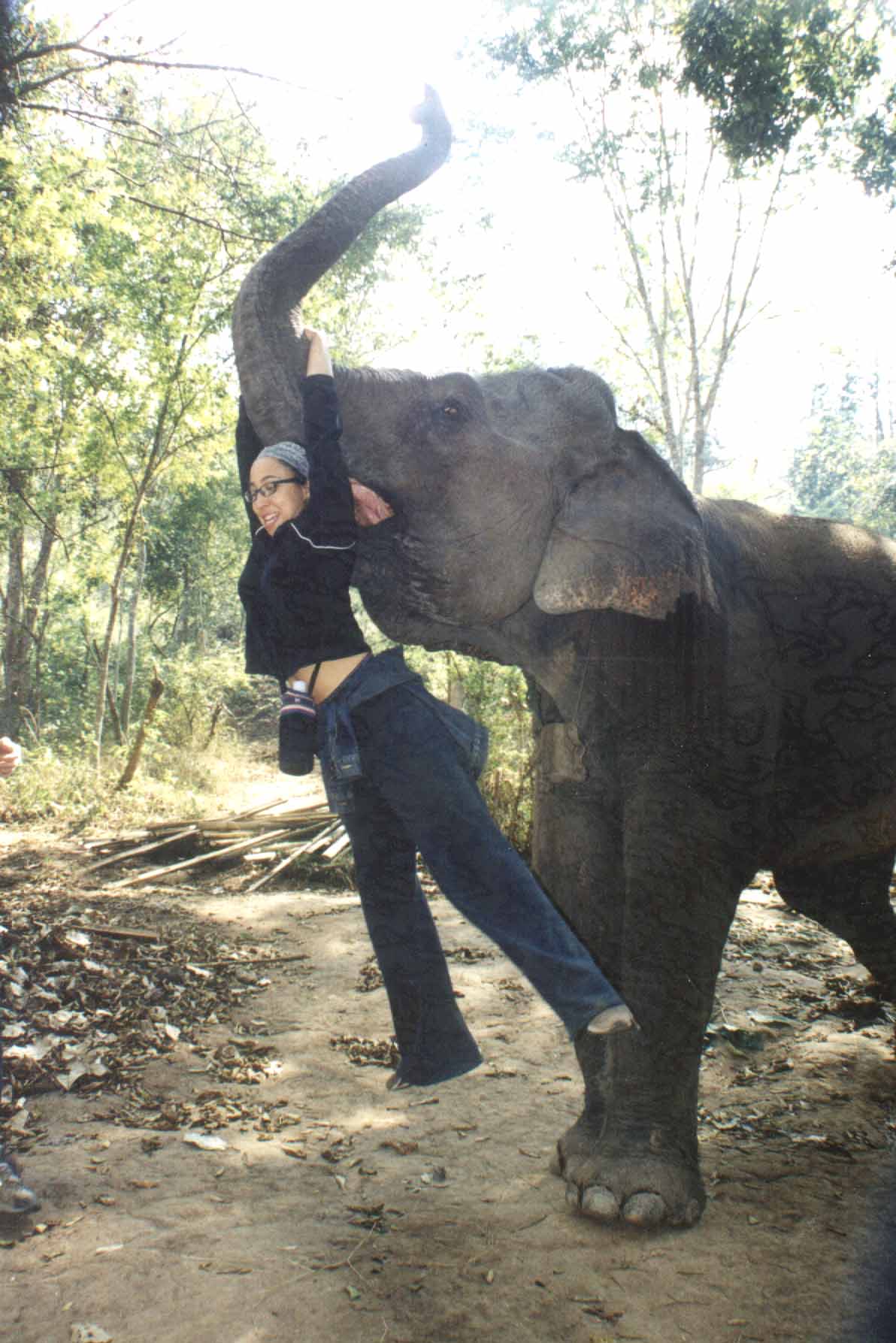|
Unsuspecting visitors to an elephant sanctuary in Chiang Mai's
Mae Taeng district may be surprised to find foreign men and women eagerly bathing a herd of elephants.
You might think the task should be done by local men, or mahouts,
but these young foreigners are actually students of Ban Mae Taman's Elephant Education Programme.
Put simply, they are learning the fine art of the mahout.
An it is the only such school in the world, the Elephant Nature Park provides
students from all over the world with a rare opportunity to learn about elephants, their behavior, habitat and relationship
with humans.
The school has no fences or walls and uses the natural setting
of the river, forest and mountains as its classroom. But in this classroom, the bulky beast is the teacher.
The Elephant Education Programme is an alternative activity
recently introduced for people keen on elephants. The camp also provides elephant trekking tours and popular nature programmes
for tourists visiting the north of Thailand.

The programmes range from one week to six months. Saengduen
Chailerd, programme manager, said participants learn about elephants both in theory and through hands-on experience. They
are required to understand the animal's behaviour and determine its moods-what every good mahout should know. Participants
also learn to control the animal with commands. Students are required to live with the elephant in the natural setting and
some students develop a natural bond with the animal.
" It's a unique experience for participants," she said.
Each day starts with students taking the animals for a bath
in the river. Elephants ease their way into the water because they love to soak in the river. Students are required to observe
the animal's behaviour. They also spend some time in the classroom learning elephant anatomy, universal commands, elephant
riding as well as environmental conservation.
Foreign men and women live in lodges in the forest and often
prepare herbal cures for sick elephants. They work together happily and attentively, as if they were real mahouts.
During short breaks and lunch time, some participants stay
close to the animals and spend their time frolicking with the beasts.
" Real mahouts pass on their experiences to the students without
formal manuals or textbooks," Ms Saengduen said.
At the end, some of the students are reluctant to leave because
of the fulfiling memories derived from spending time with the elephants in the forest. All have developed a strong bond with
their charges. Yale and Oxford universities are also keep on the training programme and recently sent students and lecturers
to join the courses.
If elephants can develop feelings of envy, perhaps they
would be jealous of their well-fed peers at the camp. Many clephants have no role in today's society because of the ban on
logging. Some are taken off to urban zoos while the less fortunate are taken to city streets by their mahouts to sell fruits
to tourists.
Even though elephants are unable to live freely in the
wild, they still have a right to live 'safely' on this planet.
Story and photographs by Gomase Theenanon
|

